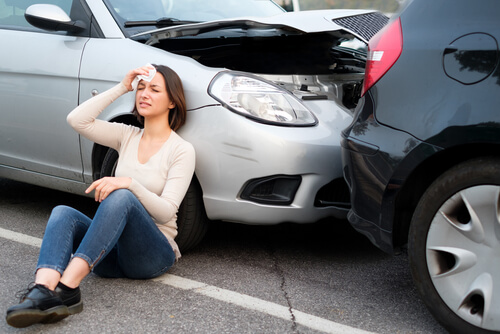When shopping for a used car, one of the biggest concerns for buyers is whether a vehicle has been in an accident. Many people assume that an accident history automatically makes a car a bad buy. However, the reality is far more nuanced. In this article, we’ll break down the differences between accident vehicles and salvage-branded vehicles and explain why an accident history doesn’t necessarily mean the car is a poor investment.
Accident Vehicles: What Does It Mean?
An accident vehicle is simply a car that has been involved in a collision at some point in its life. This is far more common than you might think. Studies show that the majority of cars on the road that are 8 years or older have experienced at least one accident. These cars remain roadworthy because many accidents are minor and repairs bring them back to pre-accident condition.
For example:
• A fender bender may require only a bumper replacement.
• A small dent could be repaired with paintless dent removal.
• Cosmetic damage doesn’t necessarily affect the vehicle’s mechanical systems or structural integrity.
A professionally repaired accident vehicle can be a reliable, affordable option that still delivers years of safe and dependable performance.
Salvage-Branded Vehicles: The Key Difference
A salvage-branded vehicle, on the other hand, is one that has been deemed a total loss by an insurance company. This happens when the cost of repairs exceeds a certain percentage of the vehicle’s value (usually around 75-80%). Once this designation is made, the car’s title is updated to include the “salvage” brand.
While some salvage vehicles are rebuilt and put back on the road, they typically:
• Have undergone significant repairs, often involving the vehicle’s structure or safety systems.
• Require a thorough inspection before they’re legally allowed to be driven again.
• May not hold the same resale value as a clean-title vehicle.
It’s important to note: A salvage-branded car isn’t automatically unsafe or unreliable, but buying one requires extra caution. Always get a detailed inspection from a trusted mechanic before purchasing a salvage vehicle.
Don’t Dismiss a Car Because of Its Accident History
While the word “accident” can raise concerns, it’s essential to understand that not all accidents are created equal. Here’s why an accident history might not be a dealbreaker:
• Professional Repairs: Modern repair techniques can restore a car to its original condition, making it just as reliable as a vehicle without an accident history.
• Transparency: With tools like Carfax and AutoCheck, you can review the details of a car’s history, including the severity of the accident and the type of repairs performed.
• Cost Savings: Vehicles with minor accident histories are often priced lower, giving buyers more value for their money.
What to Look for When Buying
When considering a vehicle with an accident history:
1. Request the Repair Records: This provides insight into the quality and extent of the repairs.
2. Get an Independent Inspection: A trusted mechanic can verify that the car is in good condition.
3. Review the Title: Make sure it’s not salvage-branded unless you’re specifically shopping for a salvage vehicle.
Conclusion
Accident vehicles and salvage-branded vehicles are not the same thing. Most older cars have been in some type of accident, but with proper repairs, they can still be reliable and safe. By understanding the difference and doing your homework, you can confidently purchase a vehicle that fits your budget and needs without unnecessary worry.
At Autowurx, we aim to provide resources and insights that empower car buyers and sellers. If you’re in the market for a used car, remember: A vehicle’s past doesn’t have to define its future.
